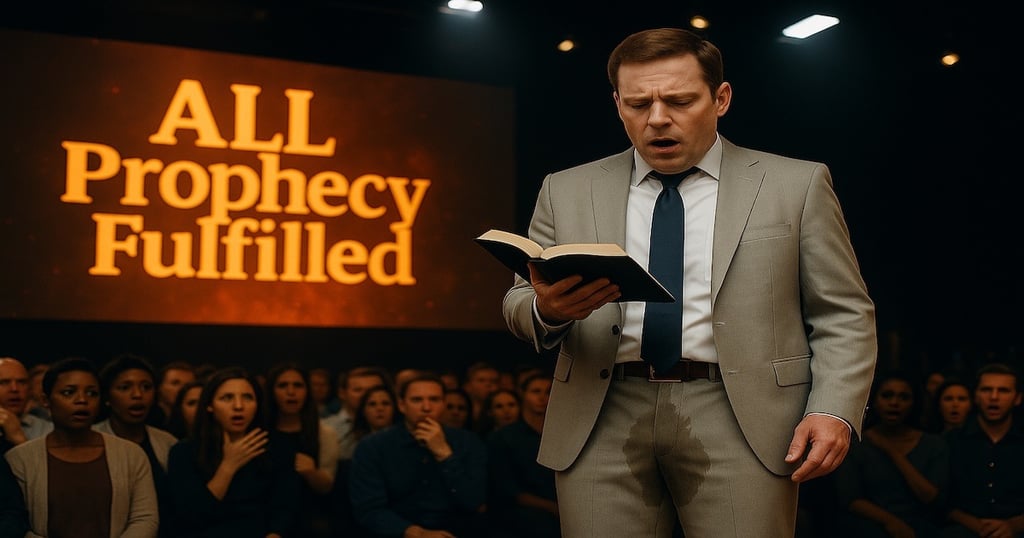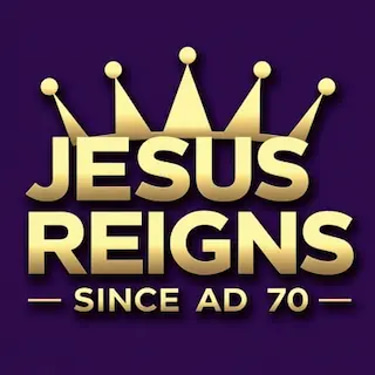Why Modern Churches Are TERRIFIED of Luke 21:22 (And Hope You Never Read It)
7/30/20252 min read


The Verse They Hope You Never Read
Luke 21:22 doesn’t whisper. It shouts: “For these are the days of vengeance, that all things which are written may be fulfilled.” All things written. Fulfilled. Not postponed, not stretched out for two thousand years. Fulfilled in their generation.
Jesus didn’t say “some things.” He didn’t say, “Most things, but keep your eye on Israel and CNN.”
Funny how this verse never makes the Sunday sermon lineup. Must have slipped their mind.
What Jesus Really Said
Jesus wasn’t vague. He tied the destruction of Jerusalem to the completion of prophecy. He warned His disciples to flee when they saw the city surrounded by armies (Luke 21:20-21). That happened in the first century when Rome encircled Jerusalem.
And verse 22? It was the divine verdict: the end of the Old Covenant order.
The Timing Couldn’t Be Clearer
Matthew records Jesus saying, “this generation will not pass away until all these things take place” (Matthew 24:34). A generation was about forty years. Jesus said it around AD 30. Jerusalem fell in AD 70. The math checks out.
No gaps. No delays. No endless waiting.
History Confirms It
Josephus, the Jewish historian who lived through it, describes the city under siege. Starvation, civil war, false prophets, and finally the temple in flames. His account reads like a footnote to Luke 21.
He didn’t record a future Antichrist or a pause button on prophecy. He recorded judgment right on schedule.
Why Churches Downplay It
If Luke 21:22 is true, the whole futurist system crumbles. No more endless speculation. No more prophecy charts. No more excuses.
So instead of facing the text, churches twist it, soften it, or skip it entirely. Easier to keep people waiting than admit Jesus delivered on time.
The Takeaway
Luke 21:22 means what it says. All things written were fulfilled in those days of vengeance. The cross was the verdict. AD 70 was the judgment carried out.
What You Should Do Next
Open Luke 21. Read it straight. Put it next to Josephus. Then ask yourself: who should you trust? Jesus’ plain words, or a prophecy teacher’s timeline?
